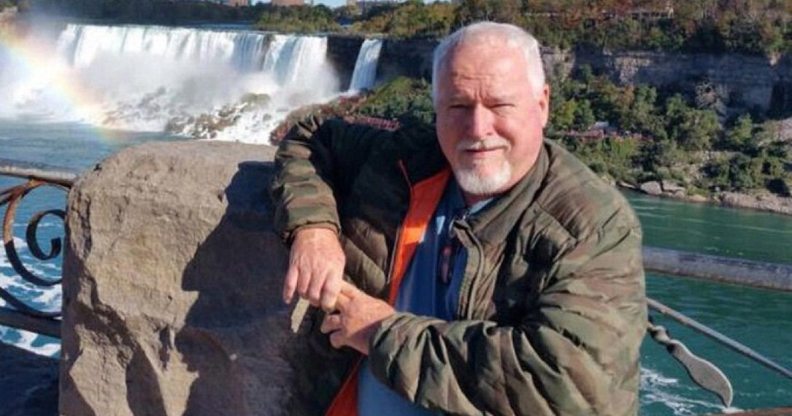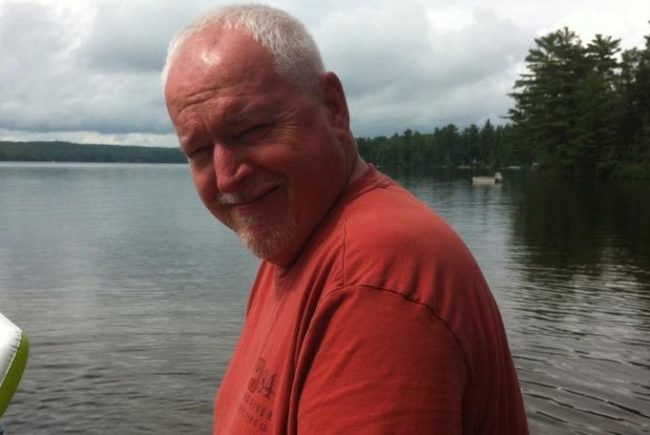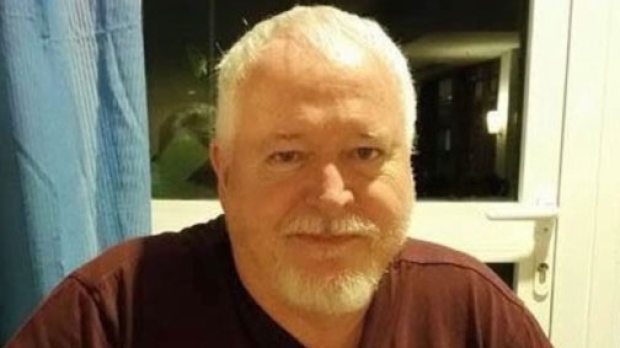Police probe unsolved 1970s gay murder cases over possible link to alleged serial killer Bruce McArthur

Bruce McArthur, a landscaper, killed eight men with ties to Toronto’s gay village. (Facebook)
Police in Toronto are now investigating whether unsolved murder cases in the gay community as far back as the 1970s were the work of alleged serial killer Bruce McArthur.
Toronto landscaper McArthur faces six counts of murder over killings of men linked to the city’s LGBT community.
The killings spanned several years, with the earliest known victim disappearing in 2010, but McArthur eluded police across years of bungled investigations.
Detectives believed that McArthur dismembered his victims, many of whom he met through hook-up sites, and disposed of remains at sites he had been landscaping.

Police this week said they were now investigating whether McArthur, 66, was connected with killings as early as the 1970s, when there was a similar spate of disappearances that also went unsolved.
Between 1975 and 1978 there was a total of 14 murders of gay men in the city, many of whom were murdered in violent attacks similar to McArthur’s alleged victims.
Detective Sergeant Hank Idsinga, the lead officer on the case, confirmed it was investigating the link.
He told the Toronto Star: “I’ve got no evidence to say he’s linked to any of the cases, but bearing in mind the number of people we’re alleging he’s killed, we’re going to take a close look at some outstanding cold cases from the Gay Village in Toronto.”
He added that investigators are “retracing McArthur’s life as far back as we can go.”

The admission comes ahead of an investigation set to air on CBC Friday about gay men who were murdered more than four decades ago.
LGBT activists have been critical of the police’s actions, alleging that authorities did not take warnings from the community about the suspected murders seriously enough, and calling for an urgent inquiry into the failings.
Police this week said they would drop plans to march at Toronto Pride after fury in the community.
In response, Toronto Police Chief Mark Saunders confirmed the force will be withdrawing from the parade.
He said: “On multiple recent occasions, I have expressed my sincere commitment to the cause of strengthening and renewing the relationship between the Toronto Police Service and our city’s LGBTQ2S community.
“As we have heard from the community itself, we have been through challenging times and it is a personal priority of mine as Chief to build an even more constructive, trusting relationship for the future.
“With this very goal in mind, I had hoped to see our civilians and uniformed officers invited back to march in the 2018 Pride Parade. My hope was that it would demonstrate a shared commitment to progress and healing. In particular, I think of the many members of the Toronto Police Service who identify as LGBTQ2S and who wish to meaningfully participate in unity and inclusion.”
A previous letter, signed by execs from Toronto Pride and other LGBT groups, said: “It is an incredibly complex and difficult time. The arrest of Bruce McArthur, the alleged serial killer, has added a new poignancy and a new pain to the fears that sit at the heart of anyone who lives a life of difference.”
Last month an internal investigation was reportedly launched over allegations of police misconduct in the Bruce McArthur case.
McArthur stands accused of killing seven men he met in Toronto’s gay district and on gay dating apps. Six of the men have been identified.
The lead detective investigating the case has uncovered possible misconduct by police in a “troubling” incident involving the alleged serial killer years before he was arrested.
The incident is now the subject of a formal investigation by officers.
Idsinga said he came across details of possible misconduct in mid-2017, but has only been able to compile the full details in recent weeks.
A formal dossier was reportedly handed to police.
Idsinga was asked by local news if the investigation was “a career case” for him and his colleagues.
“This one is certainly going to have an impact on some careers, positively and possibly negatively as well, but it’s definitely one for the books,” he replied.
66-year-old Mr McArthur was charged with a sixth murder, of Skandaraj Navaratnam, 40,.
Navaratnam went missing in 2010, making him one of a string of men who disappeared from Toronto’s gay village downtown.

Officers have confessed that there could be more victims of the alleged killer and have searched 30 separate sites.
McArthur worked as a landscape gardener and police fear there could be the remains of more men in gardens around the city.
McArthur has not yet entered a plea to any of the charges thus far.
Police are still working to identify the remains of people who were found inside planters.
Haran Vijayanathan, a community activist and executive director of the Alliance for South Asian AIDS Prevention in Toronto, believes that authorities missed vital clues to the alleged killer in early years.
“Until that point, all the South Asian men that went missing kind of fell by the wayside and nobody paid attention until something happened in the white community,” he said.
McArthur has also been charged with the murder of Selim Even, Andrew Kinsman, Majeed Kayhan, Soroush Marmudi and Dean Lisowick – all of whom had connections to the city’s gay scene.

